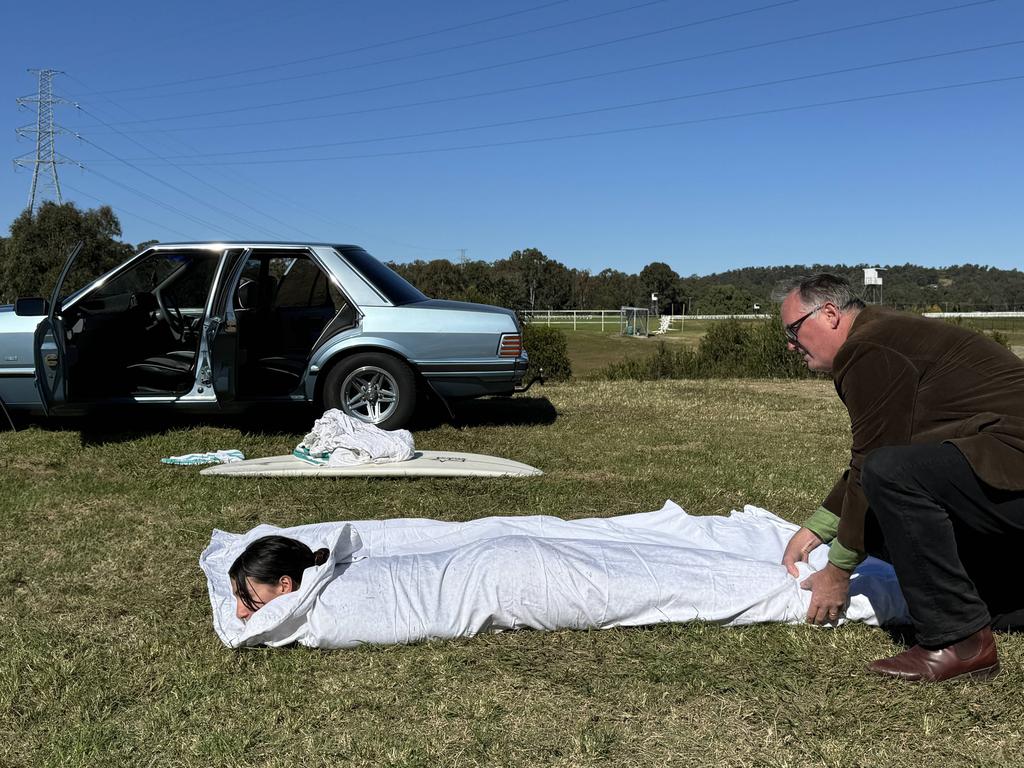Bronwyn podcast: Two mothers, two ’totally different’ situations
Police and a coroner rejected any similarity between the disappearance of NSW mother Bronwyn Winfield and the absence of her own mum when she was young.

Devoted mother of two Bronwyn Winfield’s disappearance had “not one iota” of similarity to the absence of her mother when she was young, an inquest was told.
Bronwyn’s estranged husband Jon Winfield continues to promote the idea she followed in her mother’s footsteps when she vanished from her home in Lennox Head more than three decades ago.
It was a theory Mr Winfield’s lawyer put to Detective Sergeant Glenn Taylor from NSW Police at a 2002 inquest, and one that was firmly rejected, The Australian’s investigative podcast Bronwyn has revealed.
“She might’ve been sad, she might’ve been lonely, she might’ve been short of money, all those things come with possibly being sad,” Mr Taylor replied.
“There’s not one thing to suggest she was going to leave the kids, or leave the Lennox Head area; there was nothing there at all. Not one iota of similarity… between her mother’s and Bronwyn’s disappearance, or that they’re linked by mental illness.”
The podcast is recreating crucial evidence from the week-long inquest presided over by then NSW deputy state coroner Carl Milovanovich.
Barrister Craig Leggat, representing Mr Winfield, told the inquest that when Bronwyn and her brother Andy were preschoolers, their mother, Barbara Read, “took off … and had no contact with them for 11 years”.
He asked Mr Taylor if it struck him “there were similarities between what the mother had done and what Bronwyn might’ve done”.
“No,” the detective replied, before adding that unlike her mother, Bronwyn did not have schizophrenia. “There was nothing to suggest she suffered from any mental illness,” he said.
When Mr Milovanovich gave his preliminary view on the opening day that there wasn’t “any prospect in the world that Bronwyn is still alive”, Mr Leggat again raised her mother.
“You have to be very careful with that, Your Worship. If a coroner was sitting in relation to Bronwyn’s mother at the same point in time as we are, that’s the conclusion that probably would have been reached there – and that would have been wrong,” Mr Leggat said.
The deputy coroner responded by pointing out key differences between the two women.
“There’s too close a parallel between Bronwyn and her mother which is not fair and I can see perhaps why that might want to be exploited for the benefit of certain known persons,” Mr Milovanovich said.
“If you look at the situation with Bronwyn’s mother, she did suffer from diagnosed schizophrenia. When she did leave and go to England, the children were already in the legal custody of her husband.”
In contrast, Bronwyn “had possession of the children and on all accounts was planning to move back into the matrimonial home and get custody of the children … It’s a totally different situation.”
Bronwyn went missing on the night of Sunday, May 16, 1993, leaving behind two girls, 10 and five. Mr Winfield told The Australian last year that her family had a history of mental illness. He denies any involvement.






